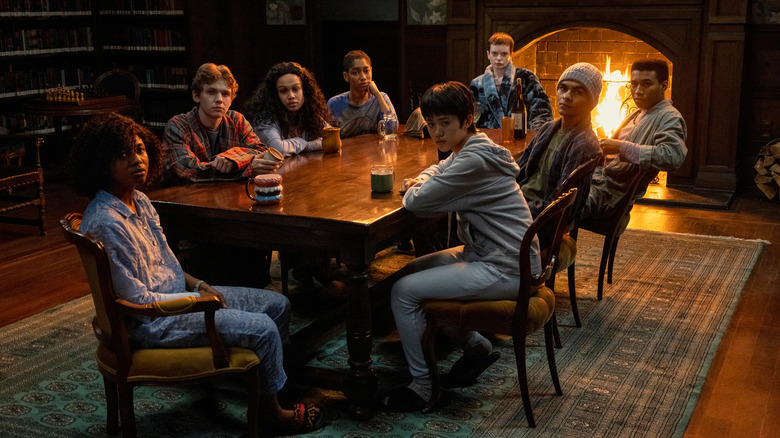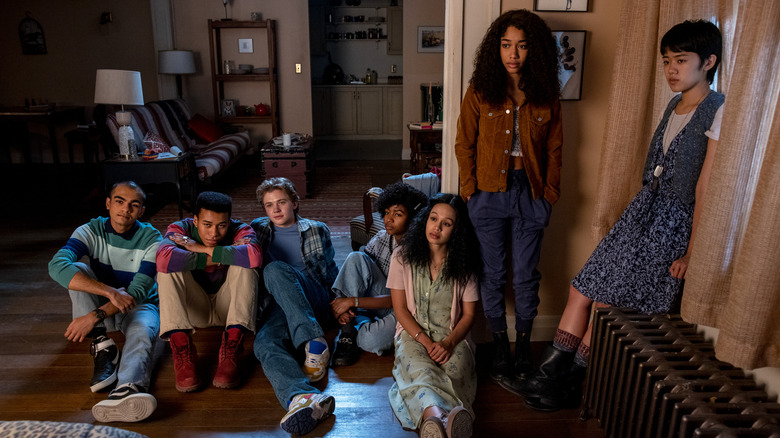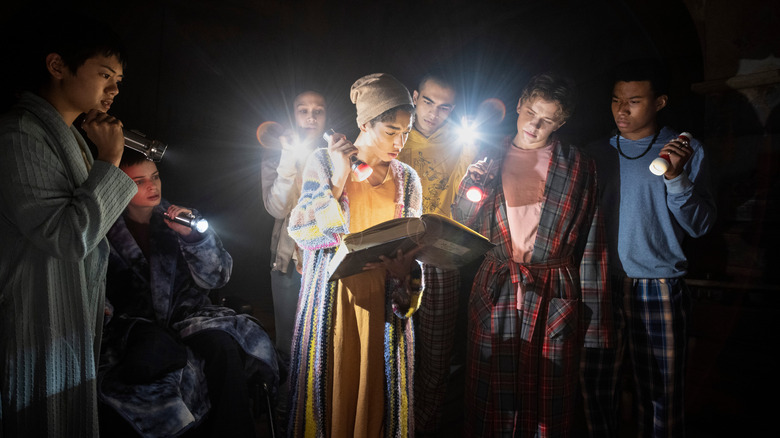The Midnight Club Review: A Rare Misfire From The Mike Flanagan Netflix Horror Machine
Mike Flanagan is one of the most interesting and prolific horror filmmakers working right now, so much so that he's developed his own brand. Especially on Netflix, where he continues to create horror series that usually go over like gangbusters. His most recent show, "Midnight Mass," was one of his best yet. And, having followed hs career since his debut feature "Absentia," I consider myself a big Flanagan fan (or Fanagan, if you will). So believe me when I say I take no pleasure in stating that Flanagan's latest, the Netflix series "The Midnight Club," is a bust.
Co-created with Leah Fong, "The Midnight Club" is inspired by the work of Christopher Pike, who was kind of like the dark shadow to R.L. Stine back in the day when YA horror paperbacks were all the rage. But while Stine trafficked in ghouls and ghosts (and the occasional serial killer), Pike's books were always weirder, going into incredibly strange directions that often involved aliens, religion, and more.
Which is part of why "The Midnight Club" is so puzzling — it feels far too tame to come from Pike's world. Where's the weird? All I know is that it's not here. But fine, if Flanagan and company didn't want to get that weird, they could've at least given us something scary. But "The Midnight Club" is inert and dull, lacking any genuine frights (plenty of jump scares, though). Worse, it has a young cast who almost all fail to deliver across the board.
A weak cast
College hopeful Ilonka (Iman Benson) thinks she has her whole life ahead of her, but that changes drastically when she's diagnosed with terminal cancer. After surfing the early internet (the show is set in 1994, so we get to see characters using AskJeeves), Ilonka discovers Brightcliffe, a secluded, picturesque hospice facility that caters to young people with terminal illnesses.
She decides to check into the joint where she meets a cast of quirky characters, including her immensely bitter and frequently, mean roommate Anya (Ruth Codd) and cute boy Kevin (an actor with the delightful name of Igby Rigney). Everyone residing at Brightcliffe has their own baggage to unpack, and the show clumsily does so over the course of its episodes.
Ilonka quickly learns that when midnight rolls around, her new friends gather in the basement of the sprawling, spooky Brightcliffe estate and tell each other ghost stories. And if that weren't creepy enough, there might be real ghosts lurking around the halls!
This sounds like prime material for Flanagan and company, and yet, "The Midnight Club" is severely lacking in life. It doesn't help that Benson's lead performance is shockingly bad; she can't deliver a single line without sounding like she's badly auditioning for a school play. Her fellow cast members don't fare much better, either (Codd plays her character as so abrasive that I kept hoping she would get bumped off early; no such luck).
It gets so desperate that it's like a breath of fresh air whenever an adult actor shows up. "Nightmare on Elm Street" final girl Heather Langenkamp makes the most of a small part as the doctor running Brightcliffe, and Flanagan mainstay Robert Longstreet shows up for a scene wherein he delivers such a haunting, lovely little monologue with such emotional weight that it'll have you longing for the show to abandon all these teen characters and stick with him instead.
What happened?
As I wrack my brain, I am hard-pressed to find anything worth recommending about "The Midnight Club," and as a big Flanagan fan, that's troubling. I'm not quite sure how he whiffed so hard here, but hey, he's a busy guy — perhaps he's stretched too thin? You could argue that "The Midnight Club" is cut from a different cloth than his other shows — it wants to be more of a piece of YA horror than adult-driven. But there's plenty of good YA horror out there, and it seems puzzling that Flanagan and his team were unable to hit the sweet spot to make it all work.
The idea of having the characters tell their own scary stories nestled in the show's main scary story is fun, but every single story is painfully corny or cringe-inducing. Perhaps this is intentional – these are supposed to be sick teens, not professional writers. But the show gives us the sense that we're supposed to be impressed by the utterly dumb tales of terror — there are multiple occasions where the listeners burst into applause when a story ends, as if they've just heard something amazing. They haven't.
As "The Midnight Club" wore on, I found myself struggling. Indeed, if I didn't have to review the show, I might've bailed on it completely around episode 5. I have no doubt Flanagan will come back swinging — he's got "The Fall of the House of the Usher" on the way, and I can't wait for that. But this is one rare instance where the horror master fails to stick the spooky landing. "The Midnight Club" is not worth attending.
"The Midnight Club" is now streaming on Netflix.


